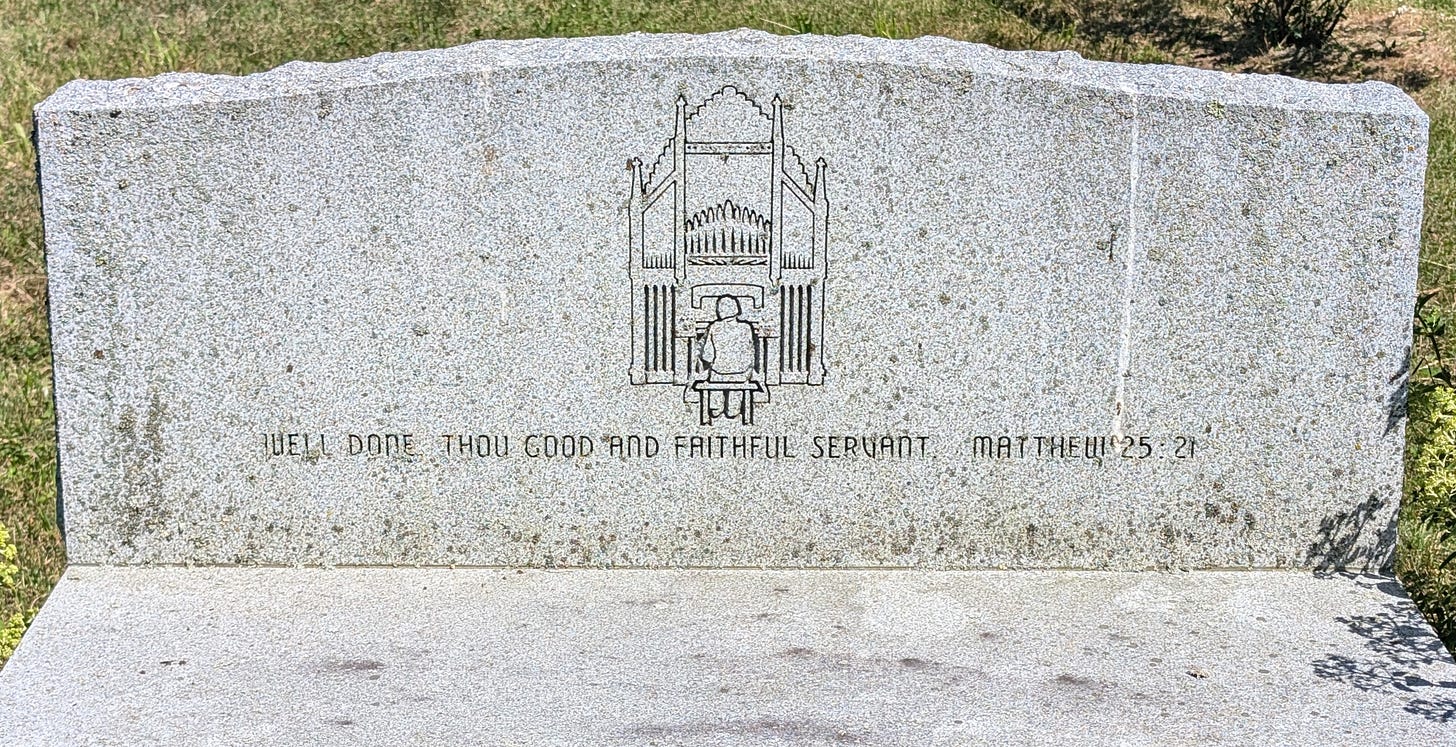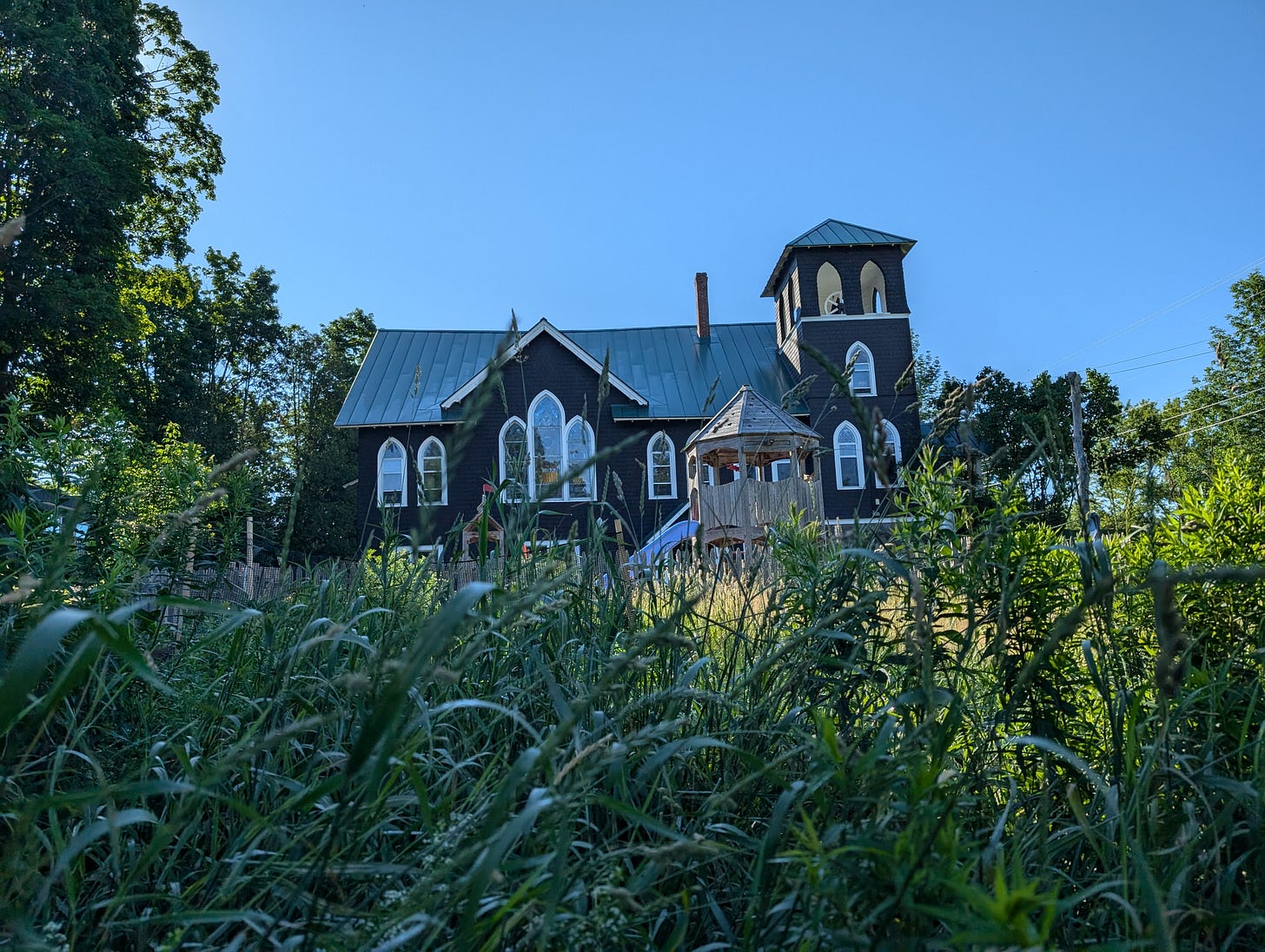One Broken Body
Justice escapes us, and still the bread is broken.
This week is the last I’ll have on this series about David’s saga through 1 and 2 Samuel. Today we get the famous confrontation of David by the prophet Nathan in response to his abuses:
The Lord sent Nathan to David. He came to him and said to him, "There were two men in a certain city, the one rich and the other poor. The rich man had very many flocks and herds, but the poor man had nothing but one little ewe lamb that he had bought. He brought it up, and it grew up with him and with his children; it used to eat of his meager fare and drink from his cup and lie in his bosom, and it was like a daughter to him. Now there came a traveler to the rich man, and he was loath to take one of his own flock or herd to prepare for the wayfarer who had come to him, but he took the poor man's lamb and prepared that for the guest who had come to him."
Then David's anger was greatly kindled against the man. He said to Nathan, "As the LORD lives, the man who has done this deserves to die; he shall restore the lamb fourfold because he did this thing and because he had no pity."
Nathan said to David, "You are the man!”
2 Samuel 12:1-7
After Nathan continues with further litanies, you can feel the shame wash over David as he realizes he has convicted himself to death by the parable; he thought he was seated at the hand of God’s judgment, but in a flash, he realizes he must beg for mercy. As attested by 2 Samuel and in the Psalms (see 51), David’s stomach-flips turn into sincere repentance. While God responds to David’s repentance with forgiveness, he still deals with consequences as his sins set off a cascade of tragedies, violence, and turmoil in his family and throughout the land. “The sword shall never depart from your house,” says the Lord.
I think this story today is an interesting microcosm of how we can read Biblical texts, particularly the prophetic element of Scripture. In a way, how Nathan confronts David is how Scripture confronts us. The way Nathan sets up this story to David to show a mirror into his sin in a way that lets him see it, so too Scripture does the same to us if we let it.
What Good Does It Do?
But this is not our preference. Our preference is to let Scripture be Scripture and keep the prophets out of our court. We prefer “politeness” that is more like absolution. And Nathan was not polite.
No, Nathan didn’t exactly offer “constructive” criticism. He didn’t give the illusion of nuance through excuses, “David, I know you had good intentions, but…” Maybe some of his less religiously-strict court co-orkers would have bristled a bit at his anger at the king—surely wasn’t Nathan being a bit of a hypocrite by being so judgmental? Nathan was a sinner, too, after all, wasn’t he a bit self-righteous? Was it really that big a deal for the king to do what he wanted? If David had been directly accused, perhaps any one of these defenses would have had the prophet killed.
To be sure, Nathan didn’t dress things up for niceties but to bypass David’s egoic defenses. He used a parable just as Christ would use in the most masterful way as part of his confrontation with us. So, too, each time we read a story from Scripture, we might be stunned when, by the end of it, we realize we’ve read something like a parable about ourselves. It’s not all about us (in fact it’s often not), but sometimes, well, we can learn an awful lot about our sin through having a Scriptural mirror. Perhaps it takes Scripture’s mirror for some of us who read it to be convicted by our sin at all.
But most of us don’t want the prophets to confront us nor do we want Scripture to confront us. Some Christians don’t want to be confronted at all by the evil and sin in the Old Testament, to simply say Jesus overrode all that so we don’t have to explain tough questions about the so-called “Old Testament God,” and eventually stop believing that it has anything spiritually to teach us. Maybe for those outside the faith we don’t find it to be Scripture at all, and we just want it to be an ancient, outdated text whose rules don’t apply to us, a book by and for authoritarians (and it surely has been their tool) instead of a gift. But ever since coming back to the faith years ago, I’ve found it immensely fulfilling to dig into this “Original” Testament and what it has to teach.
One thing it teaches us is that humanity’s instincts for justice have been twisted since our dawn, and that our justice is never going to be really satisfactory. Human justice is at best preventative or reactive, and accordingly, people don’t really ever get active, ongoing, true justice in this life. In this story alone, Bathsheba doesn’t get justice, Uriah doesn’t get justice, their child doesn’t, David’s family doesn’t, and the rest of the people impacted by David’s schemes don’t. Everybody else pays for David’s sin, as often is the case with sin.
But if justice was an impossibility, why do the prophets bother speaking up? What good did Nathan do?
Well, there may be a practical harm reduction reason; if Nathan didn’t try to stop him, what else might David’s hubris have done? But while this is a good reason to intervene, I do not know if this is Nathan’s main reason for speaking out. Instead, Nathan and all the prophets have something to witness to. There is something heavy on his heart and conscience if he didn’t witness (see Heschel for much more on this). Nathan might have asked himself, “How can I pretend to love the Lord my God if I don’t speak to this evil in front of me?”
The unbearable weight of an unspoken unconscionable truth is perhaps one half of the tension equation in so many of our churches. hile we rightfully want to preserve unity as Scripture calls us, I imagine we all sometimes feel the pangs of a weighty witness dying to get out, yearnings of the prophetic that inevitably spark conflict with those who can’t see the issue the same way. Them’s the stuff of fighting words. And that’s just one challenge to the prophet to overcome.
The Household of God
There’s another challenge to the prophet. Nathan had to contend with knowing that David had done evil but could not be written off as just a Bad Guy, not even an evil king in God’s eyes (or by Israel’s kinda low historical bar for decent kings). Nathan had to contend with the truth that David was very much part of the dwelling place of God known as the people of Israel.
For Christians, Israel as the “household of God” is a sort of pre-figuration of the body of Christ as the New Testament epistles tell (Eph 2:19-22). For us who are tempted to skip over that big chunk of the Bible that comes before Matthew, we are missing out on learning about the body of Christ in all its warts. Much of what we know about Christ’s body is not just through the heroes of the Old Testament but through its evildoers and ne’er-do-wells and people with a complex mix like David.
This broken household of God would be further broken open, both into inclusion and in pain, through Christ’s broken body. And ever since, we Gentiles who claim a Jewish savior have been confronted with knowing that we are supposed to love people who have done evil. No, not to like them, and not always maintain a relationship with them when that’s not possible (such as with abusers and people otherwise dangerous to us), and not absolve them of this-world consequences. But to maintain a love of God who somehow loves them (us) despite the evil they (we) do, a love that never comes at the expense of care for their victims, but a love that Nathan shows for David which insists on a higher standard that is, as Paul would write for, worthy of the calling we’ve received. Every day we are challenged to hear Jesus when he says that it is not the righteous who need saving but the unrighteous, not the well who need a doctor but the sick, not the spiritually full but the hungry who need the Bread of Life..
And yet this Bread in its true form is not just a saccharine topping to an empty-calorie grace cupcake, but is sometimes genuinely hard to swallow. Maybe it’s hard because of the impossibility of human justice; at least any time I think, write, or speak about loving enemies, it is not only hard to not think about my own sins, it’s hard not to think about the injustices that can’t be fixed, and worrying about someone thinking I’m demanding someone deny their pain for a platitude. I know it’s just not like that. There is just too much injustice. We can (and many of us do!) spend all day everyday doom-scrolling injustices on our phones and never reach the bottom of the algorithm. And we could never fix it. What good is this Bread of Life then?
Because we can take preventative measures against injustice, but never fully prevent it. And then when justice is responsive, it is often after permanent consequences have already happened. While “bothsidesism” is often rightfully denounced as wishy-washy fence-sitting to avoid the prophet’s call, there is indeed no side where human justice ever truly, fully prevails. And yet part of our radical belief as Christians is that true justice for all is in some way possible, not by us and maybe not in a way we can know, but through God.
I know every single example issue I could bring up is complex for people of faith, prophetic voices pulling us multiple directions. They're all a combination of our head and our heart and ignorance and our yearning and our call to sort out idolatries before we get too self-righteous, idolatries foisted on us by the powers that Scripture testifies to, powers that have temporary, fleeting rule through the world, the flesh, and the devil himself. It is so hard to parse out and discern where is the heart of evil in any situation, much less where God is.
But sometimes, especially in our local bodies-within-the-Body known as our neighborhood churches, we are called to wrestle with issues together, not because we can solve them, but because we often come into communion with the prophets of our tradition and into communion with the Holy Spirit when we try to witness to a greater justice and how we can live at least a little bit closer to it. We don’t want pointless division and bickering, and we don’t all have to be prophet Nathan for every single issue—social media is proof enough that’s not all of our calling. But our call might be to listen for Prophet Nathan today, especially when he speaks to the King David within us. Some days we’re David, and some days we may be Nathan, or we may be Bathsheba, maybe Uriah, or Joab getting roped into David’s mess, or David’s family dealing with his fallout, or just a silent bystander trying to stay out of any more trouble.
And no matter how many schisms happen for the sake of conscience and practical daily sanities, we are nevertheless in the same household. Wherever and whoever we are in any given situation and across all these situations, the sometimes annoying truth for Christians is that we're all together in the body of Christ.
One Broken Body
I therefore, the prisoner in the Lord, beg you to walk in a manner worthy of the calling to which you have been called, with all humility and gentleness, with patience, bearing with one another in love, making every effort to maintain the unity of the Spirit in the bond of peace: there is one body and one Spirit, just as you were called to the one hope of your calling, one Lord, one faith, one baptism, one God and Father of all, who is above all and through all and in all.
Ephesians 4:1-6
Scripture does not only confront us and show us a mirror to our sin, but also shows us the saving work of Jesus Christ, together in one Spirit, one baptism, and one broken body. As he tells us in John’s gospel, he is the bread of life, a bread for sinners. His bread is for the tyrants among and within us to “come and see,” to repent of our sins and reaffirm each day, “No matter how broken it is, I want to be in his body. Maybe even because it’s broken…and to be honest, I helped break it…I want to be in this body.”
Is this hard sometimes, for us to come back again and again in repentance? Of course. Is this hard sometimes to welcome our enemies again and again? Of course. I kinda think it should be hard…we’re talking about nothing less than the redemption of evil, nothing less than the defeat of the death that reigns in you and me through our million little deaths. When Christ defeated death, he didn’t defeat just death, he defeated the root of all evil. For while not all death is evil, evil’s dwelling place is in death, for death means finitude, death means irreversible, and so death means true justice for all can never come in this life.
As it so happens, alongside David the lectionary readings have brought us Paul’s letter to the Ephesians. One thing I really appreciate about the letter is its references to the spiritual powers and worldly powers and little powers like death. There’s one line especially that I find miraculous, “That through the church the wisdom of God in its rich variety might now be made known to the rulers and authorities in the heavenly places” (Eph 3:10). Emphasizing it again—it is through us humans that God teaches his wisdom to the spiritual powers, yes, even angels.
When Christ works through us despite ourselves, even the angels (and especially demons) have to stop and take note of God’s abiding wisdom and love. When we really allow the love of God to work through us toward one another, speaking the truth in love (Eph 4:15) and acting out love in truth, we allow the full wisdom of Christ’s love to re-work in us so that even the angels and demons and anything else that might be roaming around “up there” is left dumbfounded. All this because Christ loves us enough to take root in us, ground us in him, and through his resurrection bring us back up.
So when we confess and own whatever it is we have to own and say “God I am broken,” we are allowing the chance for something new again. Like David, we might still have consequences of our sin to deal with for the rest of our lives, and there still might never be justice in this lifetime. But we can always begin again to eat from the Bread.
However much death and injustice rule the day, we who wish to dwell in his house know that one God showed up as one man to say injustice does not have the final word because death does not have the final word. And when that one man left, he left his one Spirit that we all share in that a little more taste of his justice might still happen even while injustice still speaks. And so when we respond in faith to that one final Prophet, and let him work in us and among us, by his Spirit he somehow uses even us us to close the gap between his justice and ours, between the One in heaven and his images here on earth. Whenever that happens, it is nothing less than a miracle.





